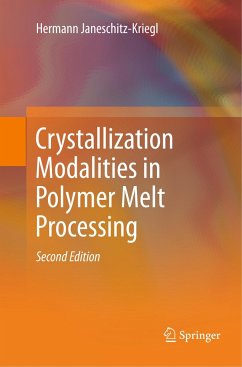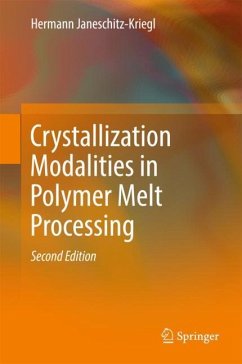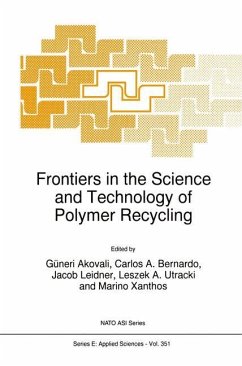
Melt Rheology and its Applications in the Plastics Industry
Versandkostenfrei!
Versandfertig in 6-10 Tagen
136,99 €
inkl. MwSt.
Weitere Ausgaben:

PAYBACK Punkte
68 °P sammeln!
This is the second edition of Melt Rheology and its Role in Plastics Processing, although the title has changed to reflect its broadened scope. Advances in the recent years in rheometer technology and polymer science have greatly enhanced the usefulness of rheology in the plastics industry. It is now possible to design polymers having specific molecular structures and to predict the flow properties of melts having those structures. In addition, rheological properties now provide more precise information about molecular structure.This book provides all the information that is needed for the int...
This is the second edition of Melt Rheology and its Role in Plastics Processing, although the title has changed to reflect its broadened scope. Advances in the recent years in rheometer technology and polymer science have greatly enhanced the usefulness of rheology in the plastics industry. It is now possible to design polymers having specific molecular structures and to predict the flow properties of melts having those structures. In addition, rheological properties now provide more precise information about molecular structure.
This book provides all the information that is needed for the intelligent application of rheology in the development of new polymers, the determination of molecular structure and the correlation of processability with laboratory test data. Theory and equations are limited to what is essential for the use of rheology in the characterization of polymers, the development of new plastics materials and the prediction of plastics processing behavior. The emphasis is on information that will be of direct use to practitioners. Extensive references are provided for those wishing to pursue certain issues in greater depth.
While the primary audience is applied polymer scientists and plastics engineers, the book will also be of use to postgraduate students in polymer science and engineering and as a text for a graduate course.
This book provides all the information that is needed for the intelligent application of rheology in the development of new polymers, the determination of molecular structure and the correlation of processability with laboratory test data. Theory and equations are limited to what is essential for the use of rheology in the characterization of polymers, the development of new plastics materials and the prediction of plastics processing behavior. The emphasis is on information that will be of direct use to practitioners. Extensive references are provided for those wishing to pursue certain issues in greater depth.
While the primary audience is applied polymer scientists and plastics engineers, the book will also be of use to postgraduate students in polymer science and engineering and as a text for a graduate course.














